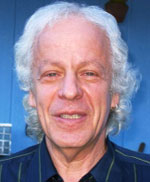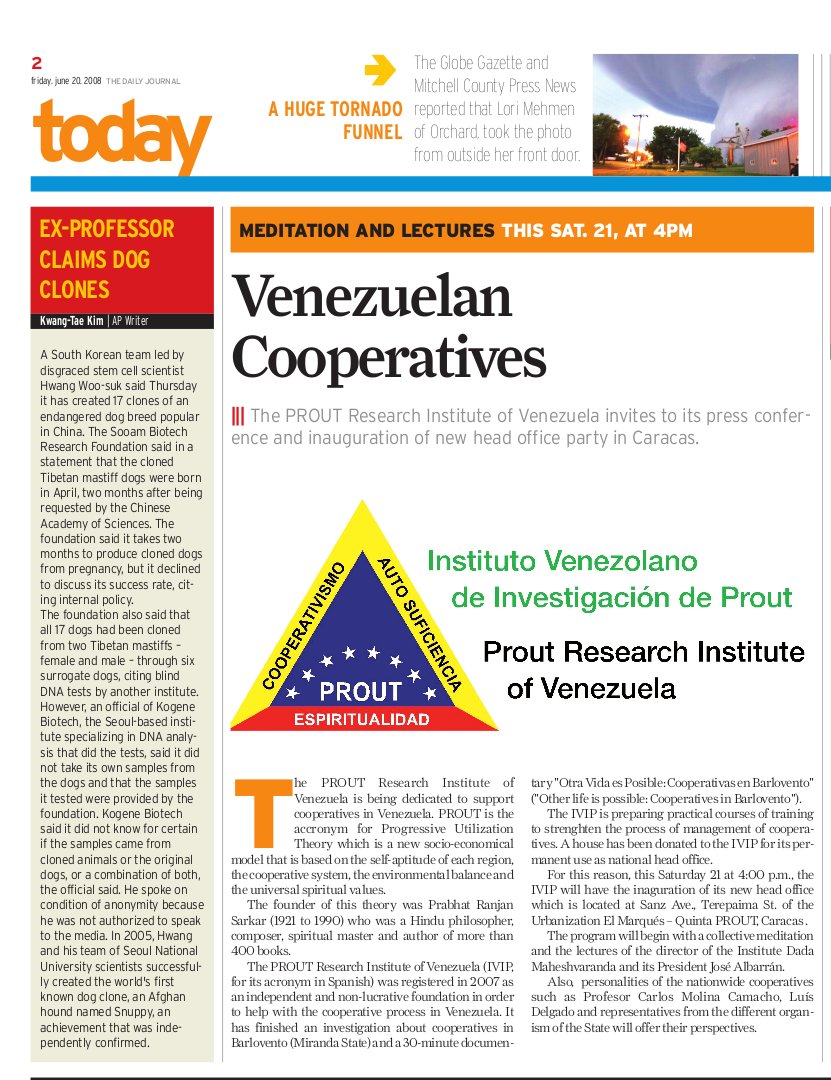 President Hugo Chávez dedicated his life to the poor people of Venezuela. He transformed their lives and transformed their country.
President Hugo Chávez dedicated his life to the poor people of Venezuela. He transformed their lives and transformed their country.
On March 6, the day after his death, I spent 11 hours waiting with friends to pay my respects as his body was slowly transported through the city. It took much longer than expected, as hundreds of thousands of people filled the streets and the giant stadium where the procession ended to get a glimpse of the passing casket. The crowds sang and clapped along with popular songs about “El Comandante”, shouting: "Chávez lives, the struggle continues!" "The people united will never be defeated!" “I am Chávez!” When the body finally arrived at night in the National Military Academy for viewing, the line of people waiting was more than two kilometers (one mile) long!
Why did so many people go? Why were they willing to wait so long? And instead of being a somber occasion with everyone dressed in black, why did so many wear bright red T-shirts, or headbands with the national colors, and why were they singing and shouting slogans?
 During the first semester of 2012, four graduate students of finance at the Universidad Nacional Experimental Simon Rodriguez did professional and community service internships in several projects of Centro Madre community center in Barlovento under the guidance of the Prout Research Institute of Venezuela. Students of Professor Dorkis Shephard and Dr. Diaz Mariña Ninoska aided in the development of this Proutist project that is recognized by governmental and nongovernmental organizations as a national model of small-scale sustainable agriculture and the production of fruit trees contributed to the development of important aspects of the project's financial situation. Research and reports by Alicia Gomez, Orietta Portales, Hernando Perez and Edit Valley significantly contributed to:
During the first semester of 2012, four graduate students of finance at the Universidad Nacional Experimental Simon Rodriguez did professional and community service internships in several projects of Centro Madre community center in Barlovento under the guidance of the Prout Research Institute of Venezuela. Students of Professor Dorkis Shephard and Dr. Diaz Mariña Ninoska aided in the development of this Proutist project that is recognized by governmental and nongovernmental organizations as a national model of small-scale sustainable agriculture and the production of fruit trees contributed to the development of important aspects of the project's financial situation. Research and reports by Alicia Gomez, Orietta Portales, Hernando Perez and Edit Valley significantly contributed to: A conversation with Noam Chomsky about: The Occupy Movement, economic democracy and cooperatives, limiting the accumulation of wealth, consciousness raising, and Latin America. Watch the conversation here.
A conversation with Noam Chomsky about: The Occupy Movement, economic democracy and cooperatives, limiting the accumulation of wealth, consciousness raising, and Latin America. Watch the conversation here.Dada Maheshvarananda:
The viral growth of the Occupy Movement, and the public support of it, is testament to the tremendous dissatisfaction with the inequities and abuses of corporate capitalism. The slogan "We are the 99%" has resonated with many people. What is your view of the potential strength of this type of mass protest and its possibility to effect social change?Noam Chomsky: Well the Occupy Movement already has had a number of significant successes. One of them, as you say, is to kind of change the national discourse. These concerns and fears and so on were, of course, prevalent for a long time for perfectly objective reasons, having to do with changes in the socio-economic system in the last 30 or 40 years. But they weren't crystallized very clearly until the Occupy Movement put them forward. And now they are kind of common coin. So the 99 percent and one percent, the radical inequality, the farcical character of purchased elections, the corporate shenanigans that led to the current crisis and have been crushing people for a long time, the overseas wars, and so on. That's one major contribution.
The other one is not discussed so much, but I think it' s pretty important. This is an extremely atomized society. People are alone. It's a very business-run society. The very explicit goal of the business world is to create a social order in which the basic social unit is you and your television set, in which you're watching ads and going out to purchase commodities. There are tremendous efforts made, that have been going on for a century and a half, to try to induce this kind of consciousness and social order.

 Letter from the Director:
Centro Madre's agriculture project has developed wonderfully during the last six months. With the help of a loan from the Ministry of Agriculture (FONDAS) of Bs.F. 75,000 (about US$9,000), we built a large, new house for the chickens that is 72 square meters, plus we fenced in an additional 450 square meters where they can freely roam. We have 100 young chickens which will start laying eggs in three months.
Letter from the Director:
Centro Madre's agriculture project has developed wonderfully during the last six months. With the help of a loan from the Ministry of Agriculture (FONDAS) of Bs.F. 75,000 (about US$9,000), we built a large, new house for the chickens that is 72 square meters, plus we fenced in an additional 450 square meters where they can freely roam. We have 100 young chickens which will start laying eggs in three months. Radio interview with Dada Maheshvarananda and Mirra Price on April 10, 2013 in Asheville, NC, USA with Jeff Messer on his progressive AM radio talk show on "880, The Revolution". 27 minutes long, the discussion was about the Bolivarian Revolution in Venezuela, Prout and social justice for women. Download pdf. Listen here
Radio interview with Dada Maheshvarananda and Mirra Price on April 10, 2013 in Asheville, NC, USA with Jeff Messer on his progressive AM radio talk show on "880, The Revolution". 27 minutes long, the discussion was about the Bolivarian Revolution in Venezuela, Prout and social justice for women. Download pdf. Listen here Two radio interviews of Dada Maheshvarananda with Maeve Conlan of KGNU Independent Community Radio in Boulder, Colorado, Dec. 11 2012 and Dec. 13, 2012. Listen download mp3.
The questions included:
Two radio interviews of Dada Maheshvarananda with Maeve Conlan of KGNU Independent Community Radio in Boulder, Colorado, Dec. 11 2012 and Dec. 13, 2012. Listen download mp3.
The questions included: I enthusiastically and without any reservations whatsoever recommend the Prout house, Quinta Prout, as a place to stay in Caracas for an individual, small group or family, or a delegation. The staff and Prout, more generally, are committed to economic and social justice not just for the larger society, but they also demonstrate this in ways big and small every day by the way they treat all who visit and stay there.
I enthusiastically and without any reservations whatsoever recommend the Prout house, Quinta Prout, as a place to stay in Caracas for an individual, small group or family, or a delegation. The staff and Prout, more generally, are committed to economic and social justice not just for the larger society, but they also demonstrate this in ways big and small every day by the way they treat all who visit and stay there. "The Prout Fish"In the days prior to the First Global Prout Conference in Venezuela, the Institute was looking for a solution to the front wall of the house which was damaged. Then, motivated by the preparation work of the conference, I decided to intervene and the result was "The Prout Fish." Carving with a grinding machine and cutting the shapes directly in the concrete of the wall, I made a pattern resembling fish scales. It seemed a metaphor to see the Institute as a fish that travels the seas linking people, countries, continents. This fish has the mission of spreading the Prout theory to the world, creating links between all those who believe in a better world.
"The Prout Fish"In the days prior to the First Global Prout Conference in Venezuela, the Institute was looking for a solution to the front wall of the house which was damaged. Then, motivated by the preparation work of the conference, I decided to intervene and the result was "The Prout Fish." Carving with a grinding machine and cutting the shapes directly in the concrete of the wall, I made a pattern resembling fish scales. It seemed a metaphor to see the Institute as a fish that travels the seas linking people, countries, continents. This fish has the mission of spreading the Prout theory to the world, creating links between all those who believe in a better world. "The Eternal Light of Baba""The Eternal Light of Baba" came after a request by Dada Maheshvarananda to make an original painting for the Institute. I immediately accepted his proposal, because I always had the same desire. After months of searching for the subject of this painting, I came to the Institute with some idea of what I wanted, because in my spontaneous style of painting that arises within me, I'm never sure how to finish a work. In the atmosphere of the meditation room, Baba threw light on me, and so while painting I realized that we are here thanks to Baba who is our inspiration and who guides our steps along the way. His light is our food, our hope, our purpose and our destiny. Holding his hand we walk, turning into warriors or children, but always aware of life and love. The creator of Prout has inspired us with his philosophy that now underpins the work of this institucion. Thank you, Baba, and fill our path with light.
"The Eternal Light of Baba""The Eternal Light of Baba" came after a request by Dada Maheshvarananda to make an original painting for the Institute. I immediately accepted his proposal, because I always had the same desire. After months of searching for the subject of this painting, I came to the Institute with some idea of what I wanted, because in my spontaneous style of painting that arises within me, I'm never sure how to finish a work. In the atmosphere of the meditation room, Baba threw light on me, and so while painting I realized that we are here thanks to Baba who is our inspiration and who guides our steps along the way. His light is our food, our hope, our purpose and our destiny. Holding his hand we walk, turning into warriors or children, but always aware of life and love. The creator of Prout has inspired us with his philosophy that now underpins the work of this institucion. Thank you, Baba, and fill our path with light.



